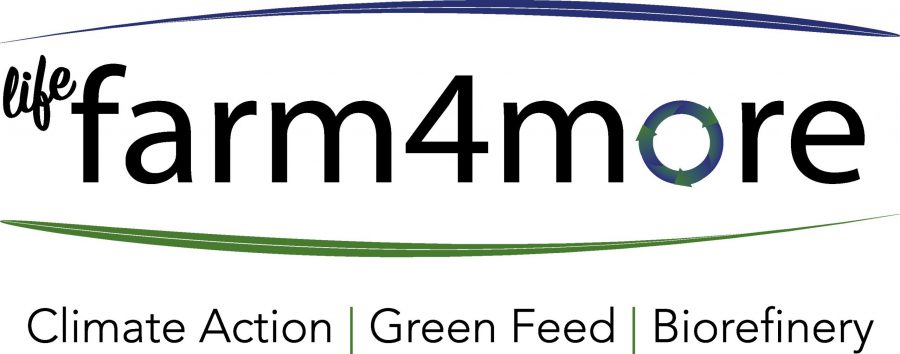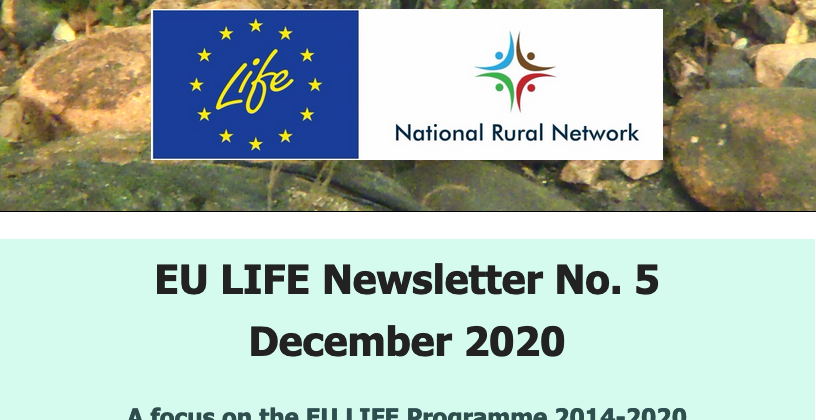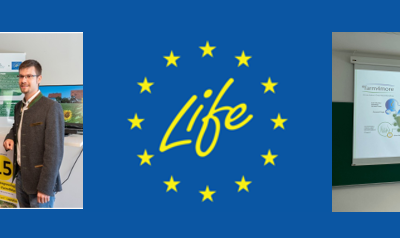Published Article as it appears in the National Rural Network Newsletter: https://mailchi.mp/nationalruralnetwork/draft-eu-life-newsletter-v2-3848582
The 1st of January 2020 marked the beginning of a new decade but it also marked the beginning of a year like no other. Under the cloud of the COVID-19 coronavirus pandemic, which took hold of the world by March, we have seen wildfires engulf and ravage Australia and Western United States of America; devastating flash floods in Indonesia; volcano eruptions in the Philippines, swarms of locusts in Asia-East Africa-India-Middle East just to name a few. Perhaps nature is trying to tell us something?
Like many other research projects across Europe, COVID-19 has affected LIFE farm4more (a four-year agricultural pilot project jointly funded by the EU’s LIFE programme and the Irish Department of Environment, Climate and Communications). With enforced lockdowns across Ireland, Austria and the rest of Europe, we have had to work hard to put contingency plans in place to ensure research could continue on this highly valuable climate mitigation project – all from our individual home offices across Europe within our national guidelines and regulations.
The central technology which underpins LIFE farm4more’s climate mitigating objectives is the creation of Green Biorefinery (GBR) Prototype. In order for the GBR to produce its climate mitigating organic-certified animal feed products, it requires organic certified feedstocks. As such the first initiative that has been undertaken by the LIFE farm4more consortium is the establishment of green biorefinery feedstock supply chains.

Figure 1: Core sampling of bales
The Irish feedstock provision initiative, which is being led by UCD (Prof Kevin McDonnell & Dr Joe Sweeney), with Irish partner organisations Biorefinery Research, Implementation & Development Ltd. (BRID) & Bantry Marine Research Station (BMRS), have successfully been able to harvest two seasons of sustainably produced grass silage (Fig. 1) and one season of seaweed silage. These harvests have facilitated sampling and laboratory chemical analysis and pressing protocols to be developed. As part of the pressing process, the UCD researchers worked to design a press chamber inlay for maximising the pressing process. The press chamber inlay was designed and then fabricated by a local steel fabricator using perforated steel mesh. These experiments and fabrications are vital in helping LIFE farm4more reach its aim of implementing a suite of technologies, strategies and techniques to achieve climate mitigation in animal protein production.

Figure 2: EVM – farm4more’s Green biorefinery deployment site
The Austrian feedstock provision initiative has been undertaken by Austrian partners TBW Research (TBWR), Agricultural Research and Education Centre Raumberg-Gumpenstein (AREC) & Irish partner BRID. Partner BRID, in collaboration with TBWR, selected EVM – Margarethen am Moos (Fig.2) as a suitable site to establish LIFE farm4more’s Green Biorefinery prototype. This site was selected due to the surrounding region being a highly productive agricultural area where farmers widely include the cultivation of Lucerne within their crop rotation cycles. Additionally, a high percentage of organic certified farming has been established in the region which could potentially fed large quantities of organic certified feedstocks to the Green Biorefinery. The first green biorefinery feedstock production campaign was conducted in the EVM region in August this year (Fig.3). This ensiled lucerne feedstock will be used later when the first green biorefinery processing campaigns are conducted in 2021. The first step towards Green Biorefinery prototype implementation has also been undertaken with the establishment of a pilot scale screw press (Fig. 5) at partner AREC’s premises. This will be used to mechanically fractionation regionally harvested feedstocks to generate the first set of silage juices and press cakes. The goal of the pilot screw press is to perform chemical analysis and characterisations of silage juices and press cakes and product recovery. Also, tests for storing silage press cake e.g., applying a re-silage procedure are underway (Fig. 6). The latter is important if press cakes are to be used as ruminants feed in the future.

Figure 3: Organic certified lucerne crop being harvested at EVM for farm4more’s green biorefinery

Figure 4: Organic certified lucerne Bales that will feed the green biorefinery currently being fabricated

Figure 5: Mechanical pressing prototype at Agricultural Research and Education Centre Raumberg-Gumpenstein (AREC)

Figure 6: Re-ensiling silage press cake at Agricultural Research and Education Centre Raumberg-Gumpenstein (AREC)
A secondary LIFE farm4more prototyping activity, which is being led by the Austrian partner BiocharNergy, involves the implementation and operation of a small-scale biochar production to produce high quality biochar suitable for feed applications. The implementation of a small-scale Biochar prototype is currently undergoing an intense engineering and fabrication phase for specific parts needed. BiocharNergy has set-out challenging targets to finalise prototype assembling and to initiate operation by end of March 2021.
Aside from research, the LIFE farm4more consortium has been busy interacting with media at various levels. Prof Kevin McDonnell (UCD) has been actively promoting LIFE farm4more across the LIFE family as well as across Ireland representing both the LIFE Programme and its benefits in additional the potential of LIFE farm4more. Dr. Julie Maguire (BMRS) has hosted an Irish documentary programme (Ear to the Ground) at the BMRS site as well as numerous radio interviews promoting both LIFE farm4more and her love of seaweed. A busy year for LIFE farm4more and still a month to go – what will 2021 hold?


